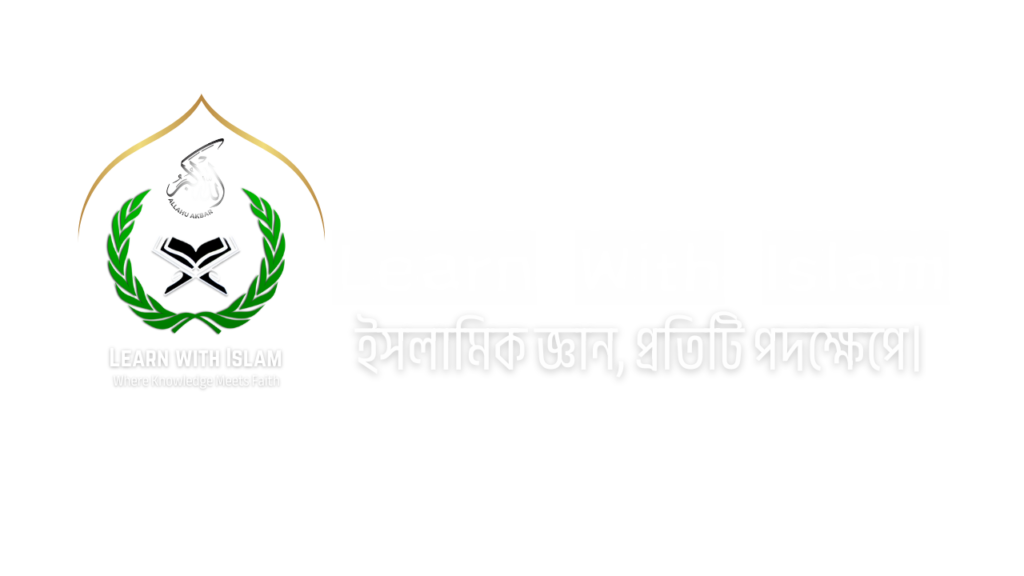Al-Balad (البلد)
بِسْمِ اللَّهِ الرَّحْمَٰنِ الرَّحِيمِ لَا أُقْسِمُ بِهَٰذَا الْبَلَدِ
Laaa uqsimu bihaazal balad
NAY! I call to witness this land –
وَأَنْتَ حِلٌّ بِهَٰذَا الْبَلَدِ
Wa anta hillum bihaazal balad
this land in which thou art free to dwell -
وَوَالِدٍ وَمَا وَلَدَ
Wa waalidinw wa maa walad
and [I call to witness] parent and offspring:
لَقَدْ خَلَقْنَا الْإِنْسَانَ فِي كَبَدٍ
Laqad khalaqnal insaana fee kabad
Verily, We have created man into [a life of] pain, toil and trial.
أَيَحْسَبُ أَنْ لَنْ يَقْدِرَ عَلَيْهِ أَحَدٌ
Ayahsabu al-lai yaqdira 'alaihi ahad
Does he, then, think that no one has power over him?
يَقُولُ أَهْلَكْتُ مَالًا لُبَدًا
Yaqoolu ahlaktu maalal lubadaa
He boasts, "I have spent wealth abundant!"
أَيَحْسَبُ أَنْ لَمْ يَرَهُ أَحَدٌ
Ayahsabu al lam yarahooo ahad
Does he, then, think that no one sees him?
أَلَمْ نَجْعَلْ لَهُ عَيْنَيْنِ
Alam naj'al lahoo 'aynayn
Have We not given him two eyes,
وَلِسَانًا وَشَفَتَيْنِ
Wa lisaananw wa shafatayn
and a tongue, and a pair of lips,
وَهَدَيْنَاهُ النَّجْدَيْنِ
Wa hadaynaahun najdayn
and shown him the two highways [of good and evil]?
فَلَا اقْتَحَمَ الْعَقَبَةَ
Falaq tahamal-'aqabah
But he would not try to ascend the steep uphill road...
وَمَا أَدْرَاكَ مَا الْعَقَبَةُ
Wa maaa adraaka mal'aqabah
And what could make thee conceive what it is, that steep uphill road?
فَكُّ رَقَبَةٍ
Fakku raqabah
[It is] the freeing of one's neck [from the burden of sin],
أَوْ إِطْعَامٌ فِي يَوْمٍ ذِي مَسْغَبَةٍ
Aw it'aamun fee yawmin zee masghabah
or the feeding, upon a day of [one's own] hunger,
يَتِيمًا ذَا مَقْرَبَةٍ
Yateeman zaa maqrabah
of an orphan near of kin,
أَوْ مِسْكِينًا ذَا مَتْرَبَةٍ
Aw miskeenan zaa matrabah
or of a needy [stranger] lying in the dust –
ثُمَّ كَانَ مِنَ الَّذِينَ آمَنُوا وَتَوَاصَوْا بِالصَّبْرِ وَتَوَاصَوْا بِالْمَرْحَمَةِ
Summa kaana minal lazeena aamanoo wa tawaasaw bissabri wa tawaasaw bilmarhamah
and being, withal, of those who have attained to faith, and who enjoin upon one another patience in adversity, and enjoin upon one another compassion.
أُولَٰئِكَ أَصْحَابُ الْمَيْمَنَةِ
Ulaaa'ika As-haabul maimanah
Such are they that have attained to righteousness;
وَالَّذِينَ كَفَرُوا بِآيَاتِنَا هُمْ أَصْحَابُ الْمَشْأَمَةِ
Wallazeena kafaroo bi aayaatinaa hum as-haabul Mash'amah
whereas those who are bent on denying the truth of Our messages – they are such as have lost themselves in evil,
عَلَيْهِمْ نَارٌ مُؤْصَدَةٌ
Alaihim naarum mu'sadah
[with] fire closing in upon them.
Meaning
The City
Ayas
20
Revelation
Meccan
Surah No
90
Surah Al-Balad highlights the themes of human struggles, moral responsibility, and the consequences of choices. The key themes include:
The city of Makkah: The Surah begins with an oath by the city of Makkah, the blessed and sacred place where the Prophet Muhammad (ﷺ) resided. It signifies the importance of the city and the people who inhabit it.
The challenges of life: The Surah speaks about the hardships and struggles that human beings face in life, such as difficulties in striving for success, earning a livelihood, and dealing with adversities.
Moral responsibility and charity: It emphasizes the importance of moral responsibility, urging people to act with compassion, help those in need, and engage in acts of charity, especially to alleviate the suffering of the poor and oppressed.
Consequences of choices: The Surah discusses the consequences of one’s choices, contrasting those who choose the path of righteousness with those who choose to act in a self-centered and unjust manner.
A reminder of human struggles and the importance of effort: Surah Al-Balad reminds believers that life is full of trials and challenges, but the efforts to overcome them, especially through faith and righteousness, are what ultimately matter.
Encouraging charity and helping others: The Surah stresses the importance of charity and assisting others, especially those in need, as a key to spiritual success and well-being.
Warning against arrogance and selfishness: It serves as a warning against arrogance, selfishness, and the pursuit of material wealth without consideration for others.
Encourages empathy and charity: Reciting this Surah helps foster a sense of empathy and reminds believers of their responsibility to assist those in need, promoting a spirit of charity and kindness.
Strengthens resilience: The Surah reminds believers that life’s struggles and hardships are part of the human experience, and encourages resilience in facing them with patience and righteousness.
Spiritual reflection: The Surah prompts individuals to reflect on their choices in life and their moral responsibility to others, fostering a sense of accountability.
Charity and helping others:
The Prophet Muhammad (ﷺ) said: “Whoever relieves the hardship of a believer in this world, Allah will relieve his hardship on the Day of Judgment.” (Sahih Muslim)
The importance of good deeds:
The Prophet (ﷺ) said: “The best of people are those who are most beneficial to others.” (Daraqutni)
“If you find any mistakes in this, please let us know. For a more accurate translation, please refer to the English version. May Allah forgive us for any unintentional mistakes.”

